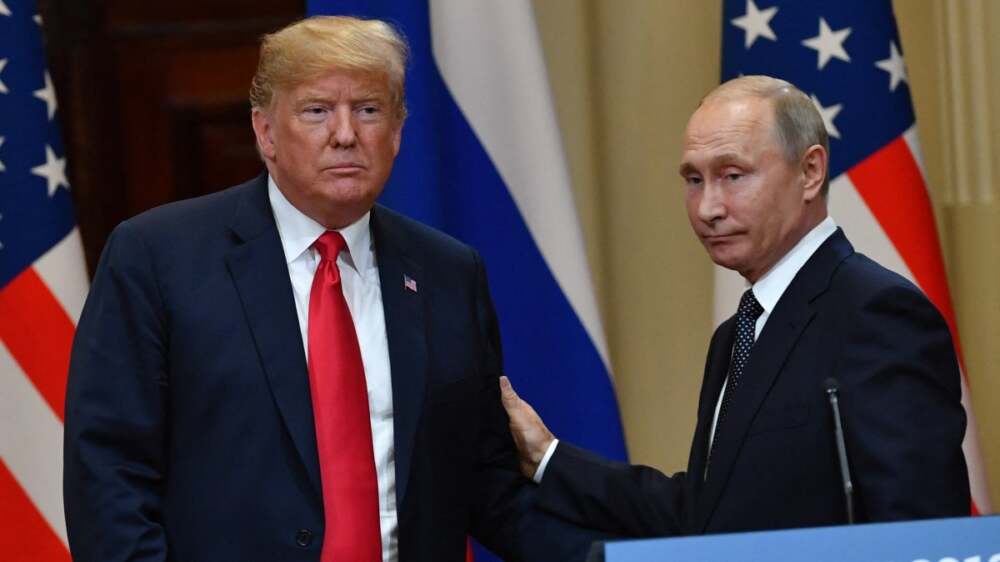As October 10, 2025 — the day the Nobel Peace Prize is announced — draws nearer, one name has dominated speculative discussion: Donald J. Trump, the incumbent U.S. President. He has made no secret of his belief that he deserves the prize, citing a string of diplomatic successes and peace initiatives. But behind the spectacle lies a more complex reality: Do his claims stand scrutiny? And can he realistically secure the award?
The Case Trump Presents: “Seven Wars Ended, Now an Eighth”
From the earliest days of his second term, Trump has repeatedly asserted that he ended seven international conflicts. In speeches, media briefings, and diplomatic engagements, he has positioned himself as a peacemaker whose record is unmatched in modern politics.
When Israel and Hamas agreed to the first phase of a Gaza ceasefire, Trump claimed credit, framing it as the “eighth” conflict he helped resolve, anchored in a 20-point peace plan he had unveiled only days earlier. He argues that this deal validates his claim to the Nobel, especially since hostage releases and military withdrawals are among its central elements.
The conflicts he often lists include:
- The wartime tensions between India and Pakistan
- Border clashes between Thailand and Cambodia
- The conflict in the Congo / DRC and Rwanda
- The confrontation between Kosovo and Serbia
- The Israel–Iran skirmishes
- The tension between Egypt and Ethiopia
- The Armenia–Azerbaijan hostilities
He emphasizes that in each case, he played—or claims to have played—a decisive mediating role.
Supporting Endorsements and Nominations
Trump’s bid isn’t just rhetorical; several countries and organizations have formally nominated him or expressed support.
- Cambodia submitted his name for the Nobel, citing his role in brokering a Thai-Cambodia border truce.
- Pakistan has announced its intent to recommend him, pointing to his alleged mediation in the India–Pakistan crisis.
- Other nations such as Israel and Azerbaijan have also expressed backing, citing his role in Middle Eastern diplomacy.
These endorsements, while politically symbolic, are part of a broader effort to build legitimacy for his claim.
The Nobel Peace Prize: Criteria and Realities
To evaluate Trump’s chances, one must understand how the Nobel committee operates:
- The Nobel Peace Prize is awarded by a committee appointed by Norway’s parliament, working with significant independence from external influences.
- Nominations must come from qualified individuals (e.g. former laureates, judges, legislators, academics) and be submitted by set deadlines.
- The committee does not reward mere claims of peacemaking; it looks for sustained, verifiable impact, multilateral cooperation, and contributions to conflict resolution that strengthen institutions or human rights.
- Historically, laureates are often activists, institutions, or leaders whose work endured over years, rather than those whose achievements are recent or controversial.
Thus, even a high-profile deal like the Gaza ceasefire must be judged against these long-term benchmarks.
Strengths in Trump’s Favor
Trump’s campaign has several advantages:
- High Visibility
Unlike many past candidates, Trump has aggressively marketed his case. His repeated public declarations ensure that his claims cannot be ignored by media or observers. - Diplomatic Footprints
The Gaza ceasefire, involving hostages and troop withdrawals, is a substantial development. If fully implemented and stable, it could count in his favor. - Broad International Support
Multiple countries sponsoring his nomination helps legitimize his bid in the eyes of some observers, ratcheting up pressure on the Nobel body. - Narrative Control
Trump claims to “deserve” the prize because of his self-portrayal as a global dealmaker—a narrative many of his supporters already accept.
Key Weaknesses and Obstacles
However, those advantages face counterweights:
- Questions on Durability and Depth
Many analysts caution that a temporary ceasefire does not equate to lasting peace. Whether Israel, Hamas, and related stakeholders abide by the terms over months and years is far from guaranteed. - Mismatch with Nobel Tradition
The Nobel Peace Prize is wary of overt self-promotion. Trump’s public campaigning may clash with the committee’s preference for modesty and quiet moral authority. - Contradictory Policies
The broader record of unilateral actions, military intervention, and controversial foreign policy decisions may undermine the image of a disinterested peacemaker. - Timing & Technicalities
If nominations or endorsements arrive after the official deadline, they may be invalid. Also, critics argue that his mediating role has been overstated in certain conflicts, making some claims difficult to verify. - Skepticism Among Experts
Many Nobel watchers consider his chances remote. They see more plausible candidates as institutions or long-standing human rights actors with sustained records.
The Verdict: A Long Shot
Given all this, Trump’s path to the 2025 Nobel Peace Prize appears challenging. While the Gaza ceasefire gives momentum, the Nobel Committee will likely weigh not just what was achieved, but how enduring and constructive it is over time.
If the ceasefire unravels or if other actions prove inconsistent with peacebuilding, his candidacy may be considered premature or overly ambitious.
What Happens Next
- The Nobel Committee will deliberate and announce the laureate on October 10, 2025.
- If Trump is named, it would mark one of the most controversial selections in recent memory—likely triggering immense debate.
- If he is passed over, expect him to portray it as a snub, and possibly double down on nominations in future years.
In Summary
Trump has made the Nobel Peace Prize a central ambition of his presidency’s second act. He has cast himself as a peacemaker, pointing to the Gaza ceasefire and earlier diplomatic efforts. But the Prize rewards more than claims—it values sustained impact, moral standing, and collaborative peacebuilding. Whether Trump will persuade the committee depends not on his rhetoric but on whether his actions withstand scrutiny over time.
















Leave a Reply